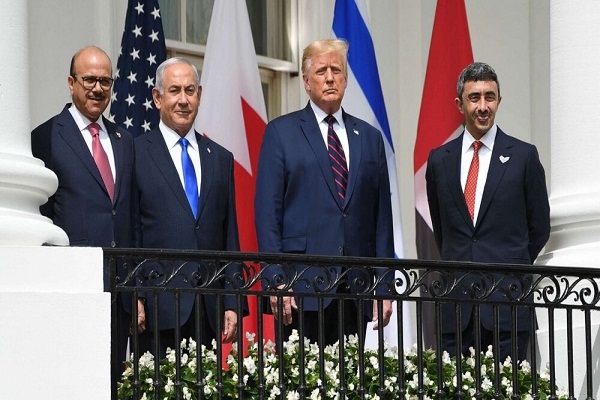Palestine-Israel Issue May Be Quite Low on Biden’s List of Priorities: Scholar

“He has many other issues to tackle, both at home and abroad, so this dispute may be quite low on his list of priorities. Moreover, with his long experience in politics and foreign relations, he has seen previous US presidents try to resolve the dispute and fail,” Greg Shapland told IQNA in an interview.
Greg Shapland is an independent researcher and writer on Israeli-Palestinian relations and on water and environmental issues in the Middle East and North Africa (MENA).
Following is the text of the interview:
IQNA: In recent months, we have witnessed the normalization of relations between some Arab countries and Israel. What is the main reason for this change in the position of these Arab states towards Israel?
Shapland: In the case of Bahrain and the UAE, the main driver of the decision to normalize was probably fear of Iran and therefore a desire to ally themselves with one of the most formidable military powers in the region, one that also sees Iran as a threat. Moreover, by normalizing with Israel, these two countries succeeded in improving their image with the US Administration, to the extent that the White House referred to them as “major security partners”. A specific incentive for the UAE was the promise of US agreement to sell it F-35 fighter jets and other military equipment.
For Sudan, the goal (since achieved) was to get itself removed from the US list of State Sponsors of Terrorism, thus paving the way for aid, loans and trade that would otherwise not have been possible.
Morocco’s reward was US recognition of its sovereignty over the Western Sahara.

IQNA: Do you think with the change of government in the United States we will see a halt or slowdown in this process of normalization of relations with Israel?
Shapland: The Trump Administration put a great deal of effort into this process. The Biden Administration, having other, higher priorities, will probably not do the same. So the process may now come to a halt.
IQNA: Which country do you think might be the next to announce the normalization of its relations with Israel?
Shapland: I would be surprised if any more countries announced that they were going to normalize relations with Israel, for the time being. However, if any do, I think the next would be Oman or Qatar.
IQNA: Some argue that, unlike the Trump administration, the Biden administration has a more moderate stance on the Palestinians. What do you think of Biden's possible policies toward Palestine?
Shapland: All US administrations have been biased to a greater or lesser extent towards Israel. President Biden will almost certainly be less biased than was Trump. But the more important question is how much time, effort and diplomatic capital he will choose to expend in trying to resolve the Israel-Palestine dispute. He has many other issues to tackle, both at home and abroad, so this dispute may be quite low on his list of priorities. Moreover, with his long experience in politics and foreign relations, he has seen previous US presidents try to resolve the dispute and fail. The focus of his attention is likely to be elsewhere, on issues on which he has a better chance of success.
At the same time, Biden’s administration may well accord greater importance to international law than did Trump’s. This may cause tension in the relationship with Israel (if, as seems probable, the next Israeli prime minister will be a right-winger) over questions such as Israeli settlements on the West Bank.
IQNA: The Palestinian Authority has announced a general election after 15 years. How do you think this election will affect the lives of Palestinians?
Shapland: This is not the first time that general and presidential elections have been announced. On this occasion, President Abbas’s main motive may have been to create a good impression with the incoming US administration. After all, Abbas has been president for 15 years despite his term of office being limited to four years – making him vulnerable to the charge that he is not a good democrat.
I do not expect the elections to take place. As on previous occasions, the differences between Fatah and Hamas over election modalities are likely to prove irreconcilable. The process will then degenerate into a blame game, with each party blaming the other for their failure to agree on the terms under which elections can be held. For Abbas, the ultimate escape route (if he deems it too risky in terms of his and Fatah’s political future to go ahead with the elections) is to say that elections cannot be held at all if the Israeli authorities declare that they will not allow voting to take place in East Jerusalem (which they will).
IQNA: Some believe that some Israeli actions, such as the continuation of settlement construction, have left no prospect of peace or a reduction in the conflict. What is your opinion?
Shapland: Peace would require the recognition of Palestinian rights, including their right to their own state. But it is hard to see how peace can be achieved if Israeli voters continue to elect right-wing governments and if Israel continues to build settlements and roads on the West Bank. So the conflict may well take a different shape, namely, a struggle on the part of the Palestinians for their rights as individuals. If that happens, the conflict would look somewhat like the anti-apartheid struggle in South Africa. This is not a "one-state solution"" – it would be a "one-state reality" that would be unstable and violent. It would take many years for a solution to be reached. Both peoples would pay the price for the failure to reach a "two-state solution".
Interview by Mohammad Hassan Goodarzi



